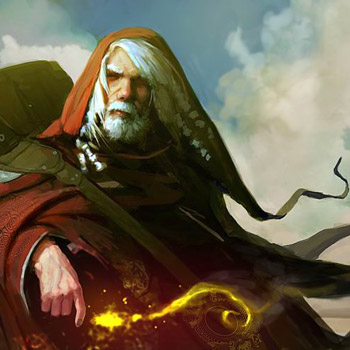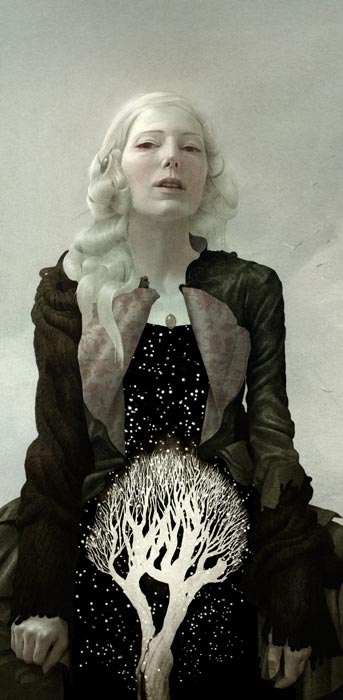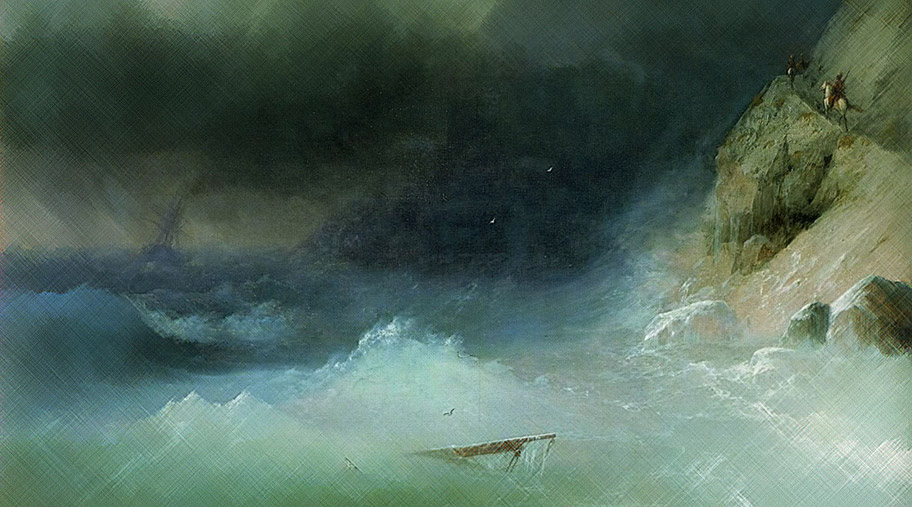Why did Shakespeare write fantasies? Why not mainstream topics, such as histories and romantic comedies?
Before we examine this question, let us examine a few others first: Fantasies are fun! Why doesn’t everybody read them? What is mainstream? Why is a story about ordinary life considered mainstream, while an equally charming fantasy is relegated to the back of the bookstore?
I had a bit of insight into this many years ago, when I first became a writer. Through a mutual friend, I connected with a fellow writer who was hard at work on a mystery. I was writing a fantasy with a great deal of mystery elements, so this sounded like a great meeting of minds. We exchanged manuscripts and then met for coffee.
How could a staff be magical? It caused a person to teleport? How does that work? The reader isn’t going to be able to follow this without an explanation.
I pointed out a few inconsistencies in her otherwise well-appointed story. She thanked me. Then, frowning over her drink, she pointed to my manuscript and said, “In this scene here, your character uses a ‘magic staff?’ You don’t explain what a ‘magic staff’ is. How could a staff be magical? It caused a person to teleport? How does that work? The reader isn’t going to be able to follow this without an explanation.”
In that moment, I learned a tremendous amount about writing and human nature.
I learned that my novel would never be a mainstream novel, that people who lived their lives only concerned about daily life wanted to read about the issues they encountered in said daily life, and that the ideas that we fantasy and science fiction readers take for granted are extraordinary and intimidating to the ordinary reader. I was writing a novel for fantasy fans. People who already understood what a magic item was. Such people did not need explanations about the basics. They were already familiar with these concepts.
Mainstream readers are not.
What this means is that the mainstream consists of ideas that everyone believes and understands, the subjects that are part of the shared experience of your audience. (Note: this is for books. The answer is slightly different for all mediums of entertainment — movies for example, where the mere fact that something looks cool is a draw in and of itself.)
So back to our question: why did Shakespeare dare to veer away from the subjects his general audience could enjoy and follow?
Or did he?
To put the question another way, back in the Sixteenth Century, what did the mainstream consist of?

Street Magic by leopardsnow
The Tempest
Let’s start with Shakespeare’s last play, and one of his most magical, The Tempest. The Tempest is a play about family and revenge with a huge sprinkling of magic. Prospero, the former duke of Milan, is forced to flee Italy with his precious books and his infant child, when his conniving brother turns against him. He withdraws to an island, where he used his great learning to command spirits and summon up storms. During the course of the play, he uses his powers to bring about a reconciliation with those who exiled him, as well as arrange a fine marriage for his lovely daughter.
Prospero uses his powers to bring about a reconciliation with those who exiled him.
In addition to Prospero, the island has several supernatural denizens. The strange, misshapen servant Caliban, who worshiped the Patagonian deity Setebos, Ariel the air spirit, and, at one point, Juno and Iris and other gods appear at Prospero’s calling to perform a pageant.
So, pretty far from mainstream, right? A magician who commands the weather and sinks ships? No ordinary person could believe that! Except that The Tempest was written around 1610. Only 22 years before, the undefeatable Spanish Armada had been driven off the coast of England—a defeat that, to this day, is credited partially to the terrible storm that hit. There were also those who believed this storm was conjured up by Sir Francis Drake, who rumor had it had trained in the School of the Night, taught by the Devil himself.
So, at the time of The Tempest, the idea of a magician commanding the elements was still in the general mindset. While the audience clearly knew it was magical, it might have been as recognizable to the audience as James Bond’s super spy gadgets are to use today. We know they’re not real, but they aren’t so far away from what we believe is possible.
Spellstutter Sprite by Rebecca Guay
A Mid-Summer’s Night Dream
A Mid-Summer’s Night Dream tells the story of several pairs of lovers, some fairy, some human, whose lives become intertwined. The magic includes love spells derived from a plant that grows where one of Cupid’s arrows fell, and spells that transform human heads into donkey heads. But the real charm of the story comes from the fairies themselves. Subtle Oberon, rebellious Titania, clever Puck—these characters are the true magic of the play.
Oberon was not an invention of Shakespeare’s, any more than were Theseus and Hippolyta, who also appear in A Mid-Summer’s Night Dream. He had appeared in other earlier works. His first appearance was in a French story called Huon of Bordeaux. In it, Oberon is a three year old boy who is the king of the elves. Huon has a magic horn that summons him.
Titania was an old poetic epithet for the huntress goddess Diana, who was a figure associated with the forest. Puck is an old name for a mischievous sprite, a form of puca or phooka. Calling the character Puck was much like J. K. Rowling calling a characters Dobby, or Alan Gardner calling one of his dwarve Fenodyree, both of which are names of fairy creatures from folklore.
So, the names were familiar, but what about the fairies themselves? Did the people at the time believe in fairies?
Yes, Virginia, they did.
Even as late as the Victoria times, there were those who clearly believed in fairies. They believed so much that they insisted a group of photographs of paper cut-outs were real. In Shakespeare’s time, it was even more so. The general belief was that fairies were angels who fell but not all the way to Hell. Though some believed them to the spirits of the dead. Fairies were thought to be mischievous and to play pranks and cause trouble—such as to sour milk. They were also thought to reward the cleanly and diligent and to punish the slovenly.
So the audience watching A Mid-Summer’s Night Dream were familiar with fairies and, perhaps, even believed them to live in barn or under their eaves.

Clearly, this must be merely fanciful! I mean, nobody really believed in witches.
Macbeth
In The Scottish Play, as actors tend to call it, (traditionally, actors were almost as superstitious as sailors,) the Scottish lord, Macbeth, approaches three witches and is given what he thinks is a promise of success, but it turns out to be a riddle predicting his defeat. The witches are depicted as old crones stirring a cauldron, in the company of their familiar spirit, a cat named Graymalkin. (In Irish lore, Graymalkin is name of the King of Cats.)
Clearly, this must be merely fanciful! I mean, nobody really believed in witches.
Except, of course, that Macbeth was written almost a hundred years before the Salem Witch trials. So somebody believed in witches.
Witches were a prevalent topic in the early Reformation period. During the Middle Ages, if you thought a witch was cursing you, you could go to the Church. The priests had many things they could do that might make you feel protected: exorcism, bless your house, say a mass for you, give you holy water, etc.
With the change to Protestantism, the more supernatural aspects were removed from the church. No more exorcisms. Also, the middle class was growing. Towns were growing. So when the old lady who lived at the edge of the village, whose family had all died long ago, came and begged for food, she might not be a close neighbor you had known for years, for whom you felt a sense of responsibility. If, when you turned her away, she muttered under her breath—and then your babe sickened or your cow died—there was no one you could turn to for protection her Evil Eye.
Witch burnings increased during this period.
(Brief aside: At least one historian believes that what stopped witch burnings was: insurance. When a man could buy life insurance to provide for his widow, old ladies were no longer bereft—and thus did not need to either be a burden to their neighbors or mutter curses.)
One reason given for why Macbeth is considered so unlucky was that some felt the spells Shakespeare included were real, and this offended the real witches, who lay a curse on the play.
So, yeah. The mainstream believed in witches, too.

Julius Caesar, Hamlet, and Richard the Third
Great Caesar’s Ghost! What’s a shade doing in a historical play? Shouldn’t ghosts be relegated to fantasies and Scotland?
A friend once told me how his college Shakespeare class had a long conversation about why Shakespeare chose to have Caesar’s ghost appear to Brutus. After much futile debate, it was discovered that the playwright merely stole this incident from Plutarch’s Lives of Noble Greeks and Romans, the foremost historical source on the subject, written in the first century.
The people at the time of Plutarch reported the appearance of Caeser’s ghost as fact. It was a part of the accepted history of the period.
The same thing goes for the nightmare Caesar’s wife suffers before his death and other portents of his coming demise. It was generally believed that such things had actually happened.
Hamlet has a ghost. Julius Caesar has a ghost, prophetic dreams, and omens of doom, and Richard the Third has not one, but eleven ghosts in all, who show up to haunt our troubled king.
Ghosts were even more accepted than weather magic, fairies, and witches. This is even true today. Many people who would laugh at the idea of fairies have their own story about having seen Great Aunt Sally in the hallway when they were a child, or daring their friends to spend a night in the haunted house down the lane.
Having a ghost in a play was no more comment worthy than having a psychic helping the officers on a police procedural.
In Conclusion
If storm magic and fairies and witches and ghosts all used to be part of the mainstream, when did this change?
With the advent of the scientific age—the age of logic and machines, people’s ideas of what was possible altered. Daily life was no longer about feeding the bwca and avoiding the evil eye, but rather about traffic and Twitter. So the subjects that drew the attention of an audience concerned only with daily matters changed as well.
But where does that leave fantasy? Alone and forgotten in the ghetto?
No. A ghetto is a place where an unpopular group, often of refugees, are forced to live. It is often the home of someone who has come more recently to town or who, for some reason, is considered of a lower class.
Fantasy has not come recently. Looking back on the earliest of literature—epic quests and stories of fantastic adventure—we see that it was here first.
But there is another place one can find old forgotten things. Old Town is the area that was once the popular place-to-be, but which has been left behind in favor of some newer. shinier spot.
Fantasy is not a ghetto—a Johnny-come-lately area of literature, worthy of the sneers of the elite. It is Literary Old Town—a bit shabby, perhaps, but still containing the grandeur and elegance of its original greatness.
And, one of its greatest inhabitants, to whom all we newcomers owe homage, is William Shakespeare, who help found this once-and-future town with the magic of his plays.



Fairies are still around until today. In Iceland, they have their own deputy in government – well, not someone from the Otherworld, but a human responsible for the rights of fairies to live in their hills without streets running through them and such. Icelandic mainstream literature is full of supernatural stuff, and no one thinks it’s weird.
The world would be a better place if more countries allowed themselves to adopt such policies and reconsider their priorities. Whether you believe in faeries (or other myths, legends and magics), or not, it’s important to always give space to and respect to where they would be nurtured and strengthened. Those pockets are so important to the health of the planet.
L. Jagi Lamplighter, above all the recent fantasy writers is a great romancer of the ordinary. While the rest of us move in and out of our ‘spiritual homes’ as if they mean nothing to us, L. Jagi Lamplighter’s writing gives us back that glorious feeling of the ‘magic’ of being alive has everything to do with living each day. She, as William Shakespeare does, takes us on a journey , makes us take another look at who we are and where we live as if you have never seen it before. The body, mind, and spirit, one’s ‘home for the soul’, is truly magical! And we receive this gift through the ‘fantasy’ writings of Shakespeare and L. Jagi Lamplighter. Unlock the door of complacency of life and imagination. Walk through and touch the magical map of ‘fantasy’ literature and let it guide you to the only home where you really live…your true self.
[…] L. Jagi Lamplighter (A Dribble of Ink) with “From the Ghetto to Literary Old Town: Exploring Shakespeare’s Magic” by L. Jagi Lamplighter […]
What I find shocking is not that the Tempest is proto-fantasy that people (like you) have mined for more traditionally fantasy novels, but that more people haven’t already done so. Besides your series and Elizabeth Willey’s, that’s the major books I can think of who have run with those tropes directly.
There are still the — ehem — Good Folk in Ireland too. A road once didn’t get widened for decades because there were two fairy thorns in the way, and the man hired to cut down one died soon after.
Though even during the height of the witch craze, there were places that were pretty safe: Italy, Spain, England. What these places had in common was that they did not deem witchcraft to be an “excepted crime” — all the ordinary standards of evidence applied — so you ended up with cases such as the Spanish one where a witness claimed to have seen a woman at a sabbat, the woman said she was home at bed, the witness said that was an illusion, and the Inquisitor said that there was no evidence that the appearance at the sabbat was not the illusion.
The witchcraze in other countries died down when authorities began to put their feet down about standards of evidence.
@ Paul:
Tad Williams wrote a sequel to Shakespeare’s Tempest: Caliban’s Hour
Thanks for the sympathetic review of Shakespeare. I might differ in some parts about whether he skimmed over his time. Macbeth was about succession as well as witchcraft, and the latter was satirized for the enjoyment or maybe comfort of the aristocratic class that thought itself beyond the power of black magic. Julius Caesar was about tyranny above all, an explosive topic in the era of the Cecilian tyranny and suppressions during the Elizabethan and Jacobean reigns. In this regard, a commoner would have been executed for questioning government, as the author did in the play. But here is a piece of yet unrecognized history, the author was protected by the queen. In fact, in Hamlet the tyrannical and cunning minister of state says, “You have protected him from much heat.” He wasn’t talking about a commoner who doubled as a moneylender and grain hoarder. He was talking about a noble whose biography fit that play like a glove. Edward de Vere, 17th earl of Oxford, lost his father to assassination and the perpetrator took over the family lands, even had his lieutenant marry Oxford’s mother. A sad and tragic tale of power in the supposed romantic and chivalrous medieval era. The child got his revenge for all time when he grew up to be “Shakespeare”.
Truth is stranger and more painful than fantasy. But fantasy is more in keeping with the protean wonder of Nature, where the half-material little folk sometimes still come out of the wood-work. As “Shakespeare” in his love of the living earth might muse, every leaf and flower has something to say.
William Ray
wjray.net
[…] From the Ghetto to Literary Old Town: Exploring Shakespeare’s Magic […]